Opinion
Community Food Market: Muibi Alade Folawiyo Naturally Ahead – By Oladele Adekunle
He would be included among the greatest breeds if he were a prophet. His words would count particularly after acquitting himself in small as well as great things. The gods most likely correctly cracked the executive chairman of Lagos Island East Local Council Development Area, Lagos State, leaving him to have his pick effortlessly.
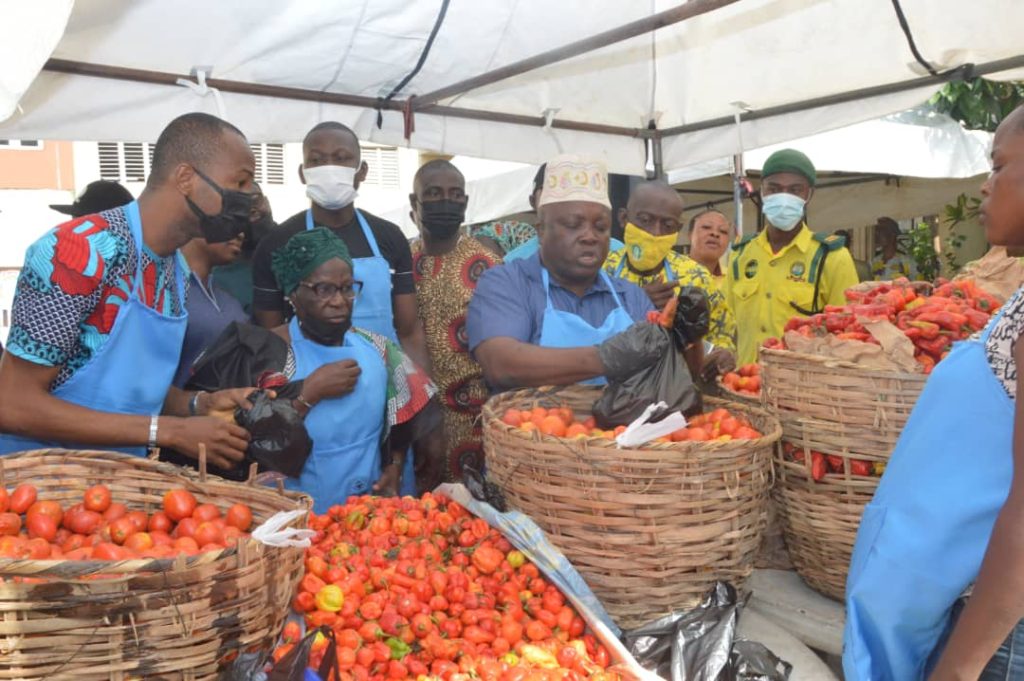
Similar to a sun His good deeds, humility, and amazing accomplishment are
remarkable, admirable, and deserving of celebration as they emerge from their shell and light up the horizon. His previous expertise put him on the fast road for his aim to serve the people of the Local Council with so much vigor and passion.
In fact, Muibi Alade Folawiyo presents the image of a man herded by his people, led by a sense of responsibility, determined to do the people’s will at all costs, and happy to work hand in hand with the people, shocking everyone who had underestimated him prior to his election as the chairman of the council.
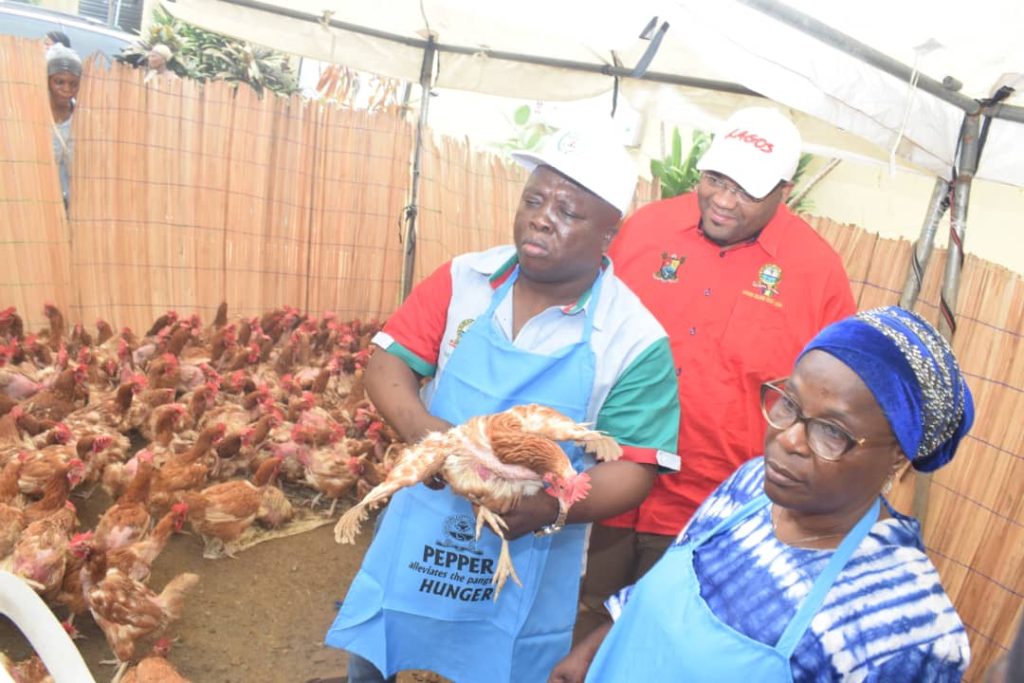
When Muibi Alade Folawiyo was sworn in as Executive Chairman of Lagos Island East Local Council Development Area, the council began to make progress and develop.His typically a tale of a humble beginning. Started small, he slowly but steadily earned the confidence of the people.
Since taking on the position of Executive Chairman, Muibi Alade Folawiyo has surely been very productive. First, the Local Council members now vouch for the calm that prevails across the Council Area. Furthermore, Alade Folawiyo has purposefully worked to revive the dwindling trust that the government can be a fatherly figure to all residents of the Council area, regardless of their religion or political affiliation.
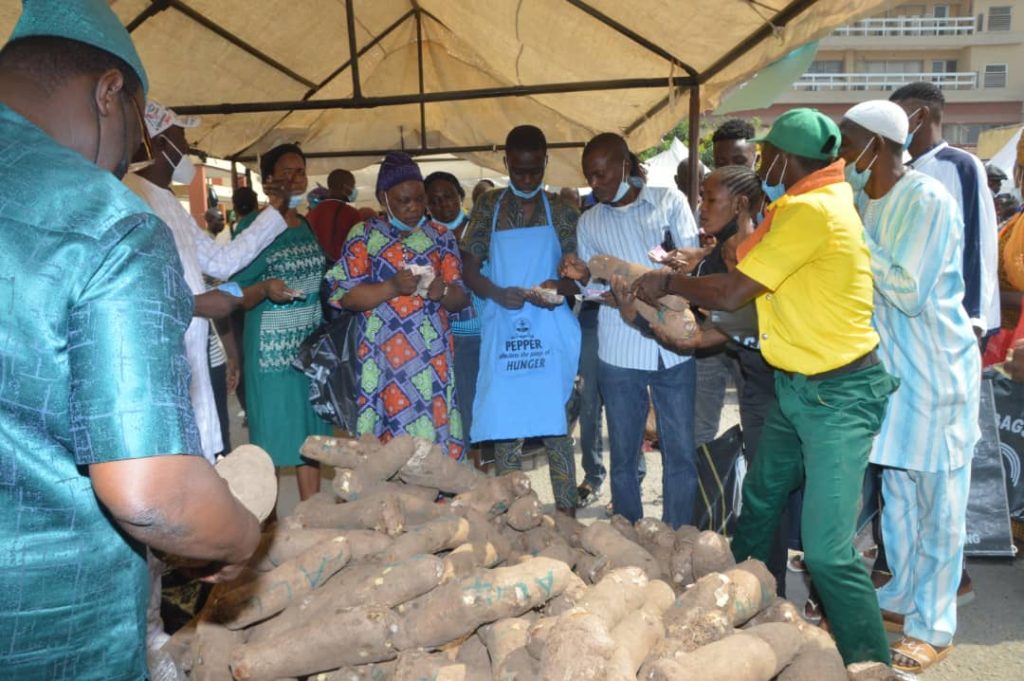
Following President Bola Ahmed Tinubu’s official announcement of the removal of subsidy on premium motor spirit known as fuel on May 29, 2023, all 36 State Governments, including Local Governments, have imitated various types of palliatives for the people as a result of the hardship caused by the removal of fuel subsidy.
The palliatives were meant to cushion the effects of the removal of fuel subsidy on the people, especially the vulnerable ones but the people are still faced with hardship as they struggle to make ends meet amid high cost of foods and services including rising inflation.
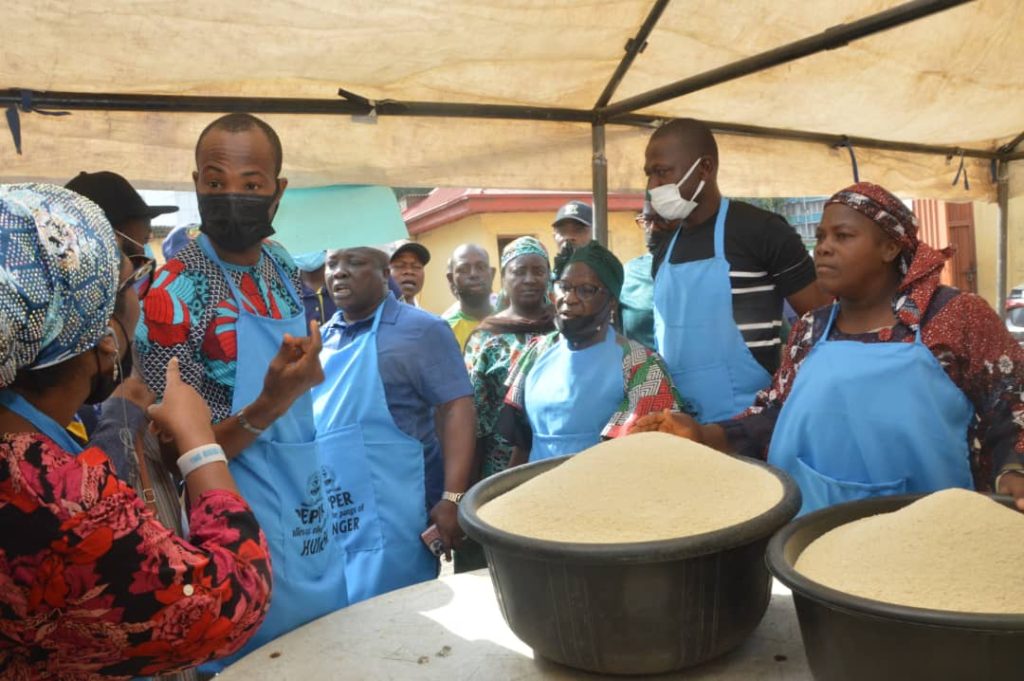
Through Muibi Alade Folawiyo, people who might not be able to afford the competitive prices that drive the market are able to access a variety of palliatives and essential goods and services like food, healthcare, and education, while special incentives are provided to individuals to reduce their economic and market-specific burdens.
Recognising the needs of his constituents, the head of the council took swift action and implemented more extensive and medium-term palliative measures. A notable effort is the Community Palliative Market, which seeks to facilitate life for all inhabitants and guarantee that all are part of the overarching goal of constructing a thriving and habitable Lagos Island East.
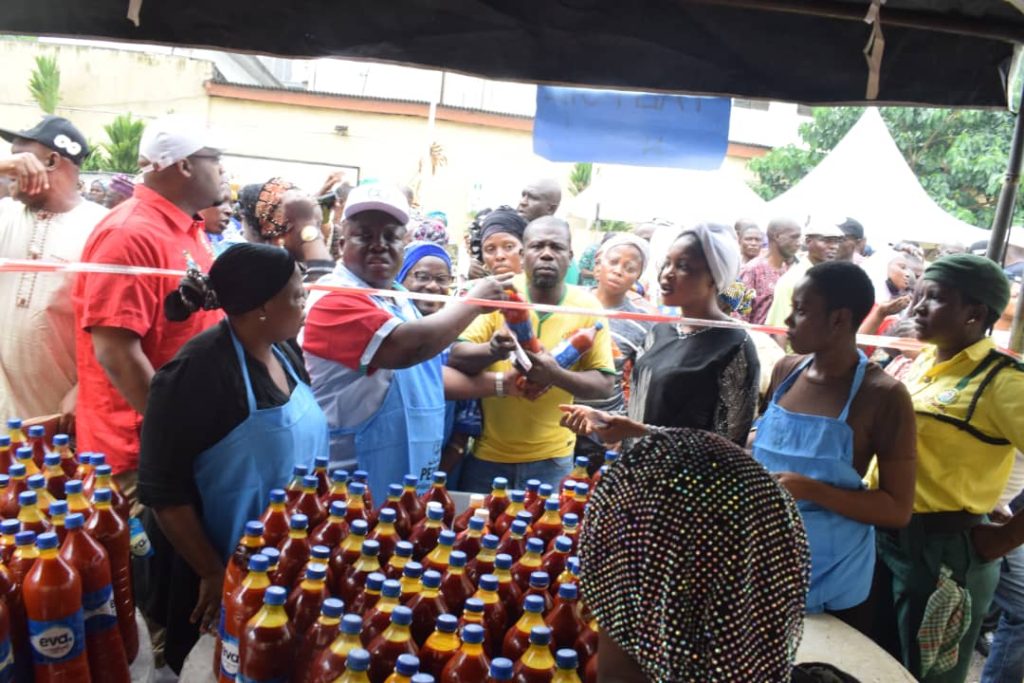
Folawiyo has been bringing smiles to the faces of residents for months now through the community palliative market. Interestingly, I had the honour and privilege of witnessing the 17th edition of the subsidised community
food market recently, where I was left dumbfounded by the prices at which goods were being sold.
A paint of Garri, priced at 3,200, was sold in the community market for 300, and an Indomie cartoon, normally sold at the open market for 7500, was sold for 2,000 (do you hear me saying that’s impossible?).The community market is sold live chicken for 2,000 as against the current market value of 6,500. At the community market, Smoked Fish, valued at 5,800, was offered for sale at the rate of 2,000.
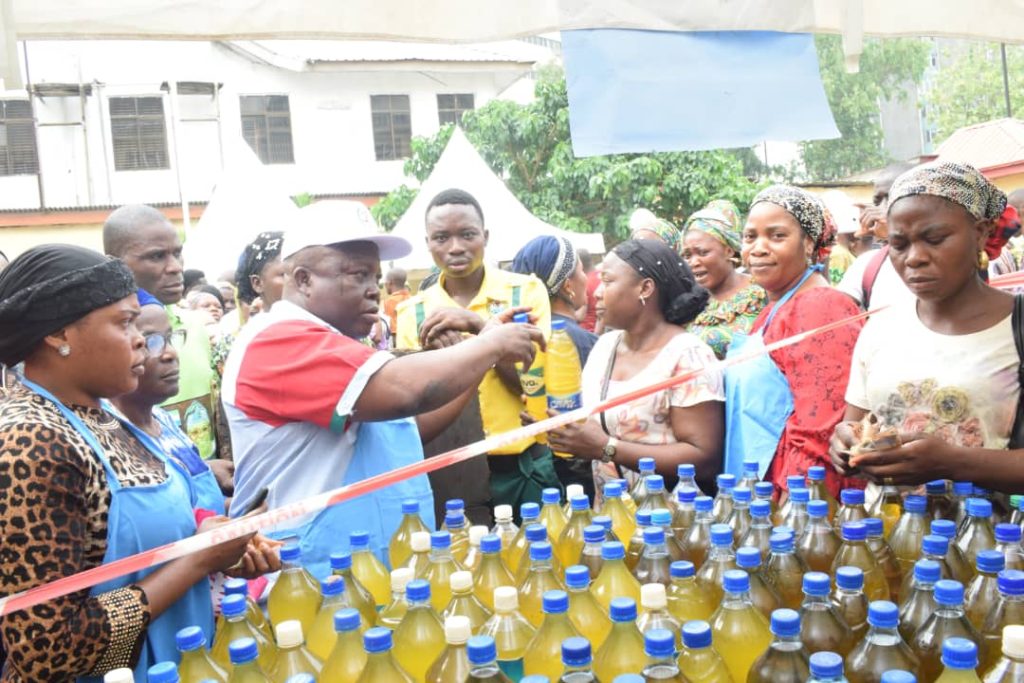
At the community market, 5 kg of semolina was sold at 1,000 instead of the current market value of 3,500. Yam flour was sold for 1,000 as against 3,500 in the open market while 1.5 litres of palm oil, which costed 2,000 was sold for 800 and 1.5 litres of vegetable oil was sold for 1,000.
The community market sold a crate of egg for 1,000 instead of 5200, while Oloyin beans was sold at the rate of 300 instead of 2.200 per derica. Rice, which has a market worth of 1,500 per derica, was sold for 300 in the community food market.
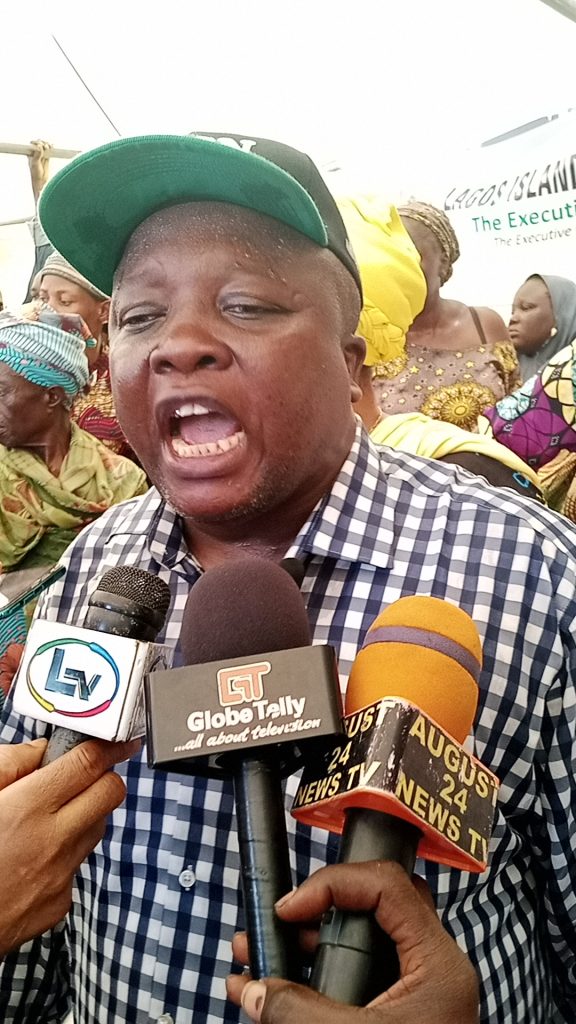
People from all over Lagos Island East have continued to praise Hon. Dr. Muibi Alade Folawiyo for dedicating himself to hard work and the pursuit of excellence to the point where his steadily rising profile is becoming
intimidating,
When considering the previous 16 editions of the subsidised community food market of various food items. It’s no surprise that his song, “Pepper Ni Jo, Pepper Ni Jare,” has become the catchphrase for those hoping for a visionary leader who is equally passionate about changing the Local Council Areas on all fronts.

This unselfish chairman, who is loved and valued by both the skilled and the unskilled, appears up to the challenge and is doing all in his power to
make everyone feel like they belong.
The fruits of selfless service, like a seed planted in the ground that yields bountifully, take the shape of long-lasting goodwill, respect, acceptance, credibility, trust, and, most importantly, love by not only direct beneficiaries of good but also those on whom the service favourably robs.
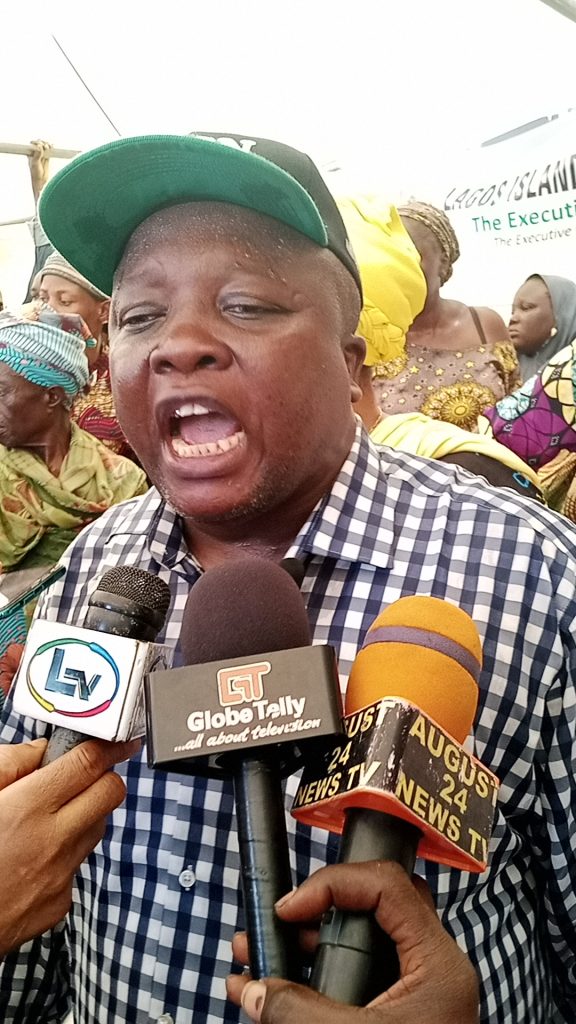
For me, Muibi Alade Folawiyo is naturally ahead of others in so many ways; the infrastructural renewal that is now taking place on Lagos Island East is exceptional and ought to be commended by everyone.
Folawiyo’s extraordinary efforts and achievements in education, social development, and health care demonstrate his steadfast dedication to his people.

Oladele Adekunle
